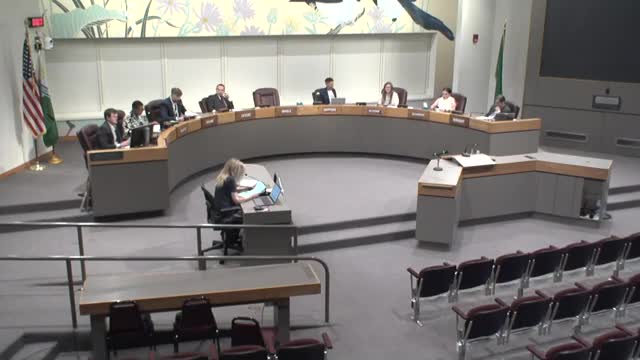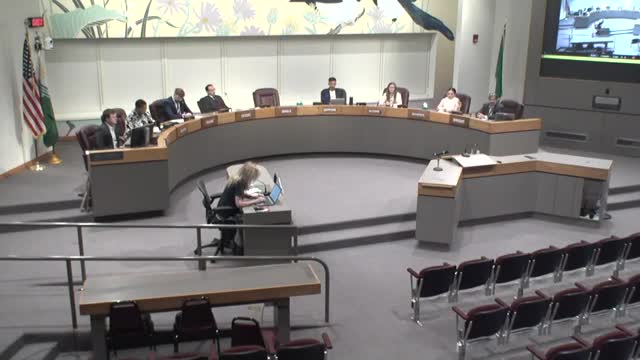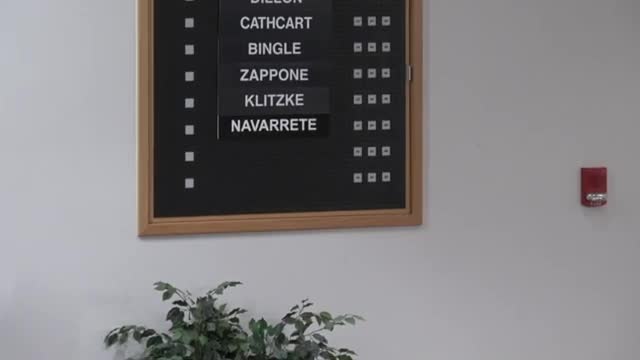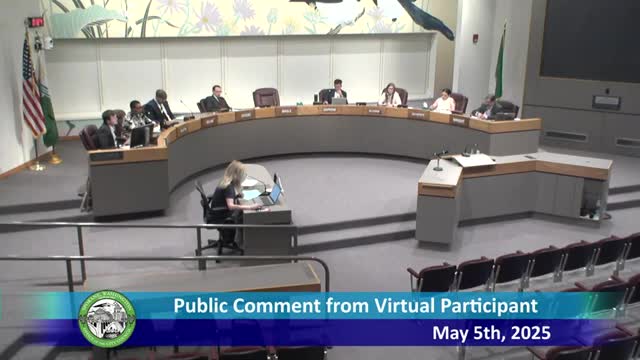Article not found
This article is no longer available. But don't worry—we've gathered other articles that discuss the same topic.

Council hears public support and concern as parks levy resolution is proposed for ballot

Police ombuds office reports rise in community contacts, urges funding independence

Council adopts planning resolutions on commute trip reduction and bicycle priority network; public comment opposes bike spending

